In a world where toddlers can master tablet apps faster than adults can find the TV remote, the importance of early childhood education programs can’t be overstated. These programs aren’t just glorified babysitting; they’re the launchpads for future geniuses, artists, and maybe even the next great taco truck owner.
Early Childhood Education Program
Early childhood education programs play a vital role in child development. These programs typically cater to children from birth to eight years, focusing on critical areas such as cognitive, social, emotional, and physical growth. Research shows that participation in early education positively affects children’s later achievements in academics and life.
Program structures vary widely, ranging from pre-kindergarten initiatives to full-day kindergarten options. High-quality programs emphasize play-based learning, allowing children to explore, ask questions, and engage actively with their environment. Documentation by the National Association for the Education of Young Children highlights that well-implemented programs yield long-term benefits for both children and the community.
Educators within these programs often possess specialized training in early childhood development. They utilize diverse teaching strategies to accommodate various learning styles, ensuring every child’s unique needs are met. Moreover, involving families fosters a supportive learning atmosphere, encouraging children to thrive both at home and in school settings.
Assessment practices in early childhood education focus on ongoing observation and feedback. By monitoring progress, educators adapt their approaches, addressing any learning gaps. An inclusive curriculum integrates activities that promote literacy, numeracy, and social skills while also reflecting children’s cultural backgrounds.
Funding for these programs can come from various sources, including government grants, nonprofit organizations, and private contributions. Evidence indicates that investing in early education yields significant returns, with every dollar spent resulting in up to $7 in benefits related to reduced crime, improved health, and increased earnings.
The importance of early childhood education programs cannot be overstated. They provide a crucial foundation for lifelong learning and success.
Importance of Early Childhood Education

Early childhood education programs serve as vital platforms for children’s development, laying the groundwork for future academic and social success. Focused on children from birth to eight years old, these programs encompass essential learning experiences.
Cognitive Development
Cognitive development in early childhood is critical, with research demonstrating that structured learning enhances brain growth. Experiences in early education boost children’s abilities in problem-solving, critical thinking, and language acquisition. Engaging activities stimulate curiosity and creativity while fostering essential skills such as literacy and numeracy. Quality programs employ evidence-based strategies that align with developmental milestones. They introduce concepts through play, making learning enjoyable and effective. Observational assessments provide insights into each child’s learning style, enabling tailored instruction that meets individual needs.
Social and Emotional Growth
Social and emotional growth occurs through peer interaction in early childhood education settings. Children learn to navigate relationships, practice empathy, and develop self-regulation skills. Participating in group activities fosters communication and teamwork, building a sense of community. High-quality programs emphasize the importance of emotional intelligence, helping children recognize and express their feelings. Regular feedback from educators guides children in developing resilience and conflict resolution skills. Family involvement reinforces these lessons at home, creating a holistic approach to emotional development. Overall, the focus on social and emotional growth prepares children for future challenges in various aspects of life.
Types of Early Childhood Education Programs
Early childhood education encompasses diverse program types tailored to children’s developmental needs. Each approach offers unique philosophies and methodologies that promote effective learning.
Montessori Method
Montessori Method emphasizes child-led learning where students choose activities aligned with their interests. It fosters independence and critical thinking. Classrooms contain mixed-age groups, encouraging peer learning and collaboration. Educators serve as guides, fostering an environment where children can explore, discover, and create at their own pace. This hands-on approach cultivates a lifelong love of learning. Research states that Montessori students often outperform peers in problem-solving and academic skills.
Reggio Emilia Approach
Reggio Emilia Approach prioritizes child expression through various forms of communication. Teachers facilitate projects based on children’s interests, promoting collaborative learning experiences. Environment plays a crucial role, designed as a “third teacher.” This approach nurtures creativity and critical thinking, encouraging children to explore their surrounding world. Relationships among children, educators, and families enhance the learning process. Studies indicate that children in Reggio Emilia-inspired settings demonstrate strong social and emotional skills.
Head Start Programs
Head Start Programs focus on low-income families, providing comprehensive early education and support services. These programs aim to prepare children for school through a nurturing environment that emphasizes social, emotional, and cognitive development. Families receive resources to aid their child’s learning journey. Community involvement enhances the cohesion between home and school environments. Outcomes from Head Start participation show significant improvements in literacy and behavioral skills among children, preparing them for future academic success.
Key Components of a Successful Program
Successful early childhood education programs rest on several essential components that facilitate optimal learning. These elements include qualified educators, a robust curriculum, and a conducive learning environment.
Qualified Educators
Qualified educators play a pivotal role in early childhood education programs. Each educator brings specialized training that equips them to meet the diverse needs of young learners. Effective teaching strategies are employed to engage children and adapt to their individual learning styles. ongoing professional development keeps educators updated on the latest research and best practices. Collaborative team efforts among educators enhance instructional effectiveness. By fostering strong relationships with families, educators create a united support system that benefits children’s growth.
Curriculum and Learning Environment
An effective curriculum aligns with children’s developmental milestones and priorities. This curriculum incorporates literacy, numeracy, and social skills, ensuring a well-rounded education. Play-based learning serves as the cornerstone, allowing children to explore through hands-on experiences. A welcoming learning environment promotes safety and encourages curiosity, essential for cognitive and social development. Resources reflect children’s cultural backgrounds, reinforcing their identities. Flexibility in curriculum design allows educators to adapt to emerging interests and needs within the classroom. By ensuring inclusive practices, programs support every child’s unique journey.
Challenges in Early Childhood Education
Various challenges impact the effectiveness of early childhood education programs. Funding shortages often limit resources available for high-quality materials and trained staff. Limited access to such programs particularly affects low-income families, resulting in disparities in educational outcomes.
Teacher retention presents another hurdle. Educators frequently experience burnout due to heavy workloads and insufficient support, which affects program stability and continuity for children. Child-to-teacher ratios also pose significant challenges. High ratios can hinder individualized attention and support, negatively impacting children’s developmental progress.
Curriculum alignment with developmental milestones remains essential yet challenging. Ensuring that programs incorporate evidence-based practices and culturally responsive materials requires ongoing commitment from stakeholders. Inadequate training for educators in these areas can lead to inconsistent teaching strategies and learning experiences.
Parental involvement often fluctuates, creating inconsistencies in children’s learning environments. Busy schedules can prevent families from participating in programs designed to support their children’s education. Additionally, awareness of the value of early childhood education varies among parents, affecting their engagement levels.
Assessment practices also create challenges. Standardized assessments may not accurately reflect children’s diverse learning styles and abilities. Ongoing observation and feedback methods must be employed to provide a more comprehensive view of each child’s progress, but these require significant time and expertise.
These challenges, while substantial, highlight the need for innovative solutions and advocacy to strengthen early childhood education. Addressing funding, teacher support, and parental engagement will enhance program quality, ensuring that all children receive the foundational skills necessary for future success.
Conclusion
Early childhood education programs play an indispensable role in nurturing children’s growth and development. By focusing on holistic learning and fostering essential skills, these programs lay the groundwork for future academic and life success.
The diverse methodologies and structured environments create opportunities for children to thrive socially, emotionally, and cognitively. However, ongoing challenges necessitate collective efforts from educators, families, and policymakers to enhance program quality and accessibility.
Investing in early education not only benefits children but also yields significant returns for society as a whole. Prioritizing these initiatives ensures that every child has the chance to reach their full potential and contribute positively to their communities.

